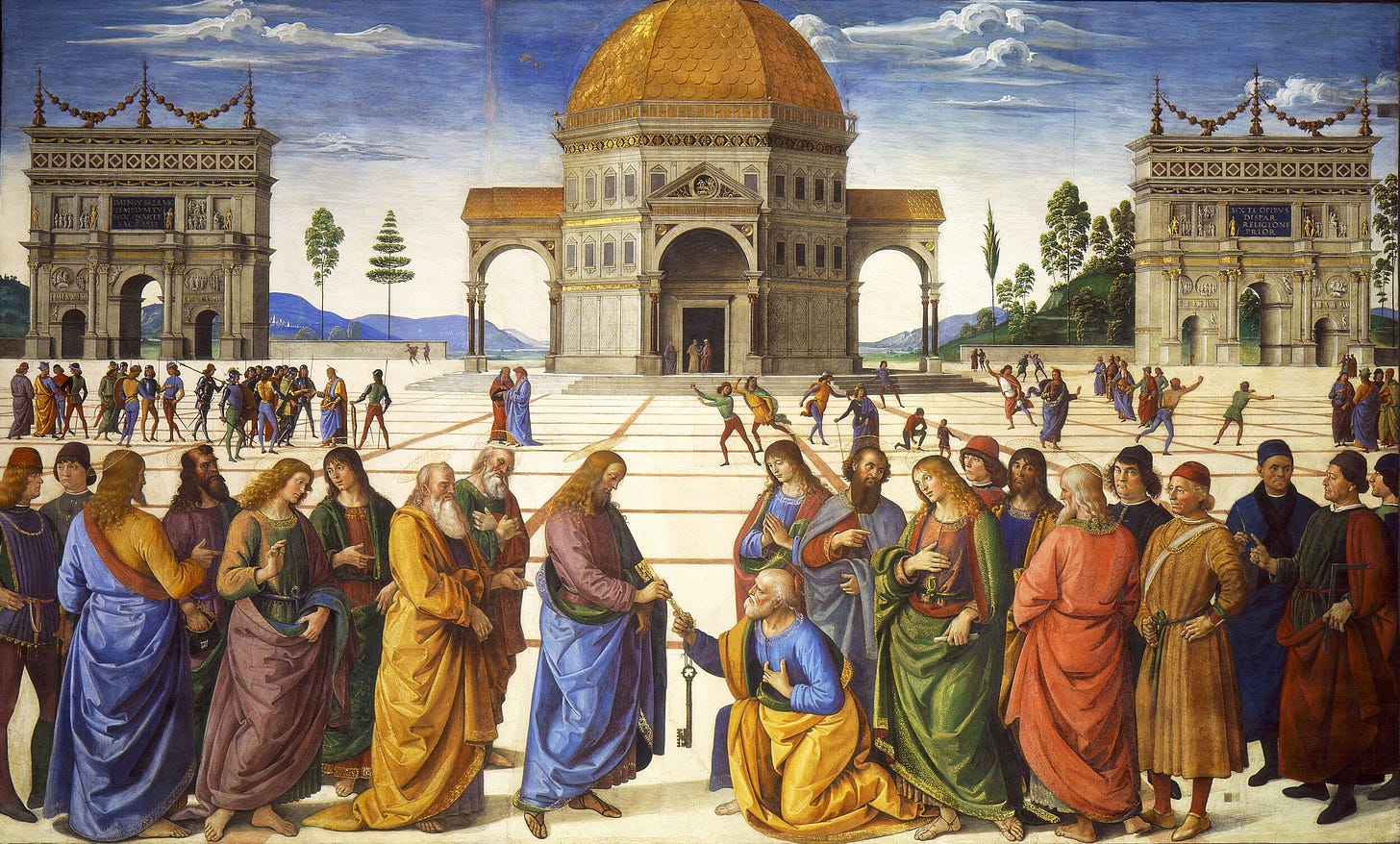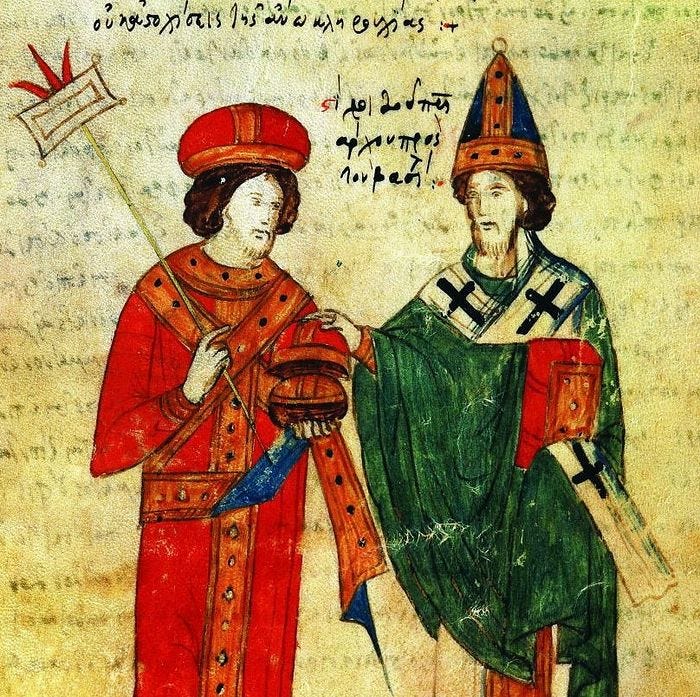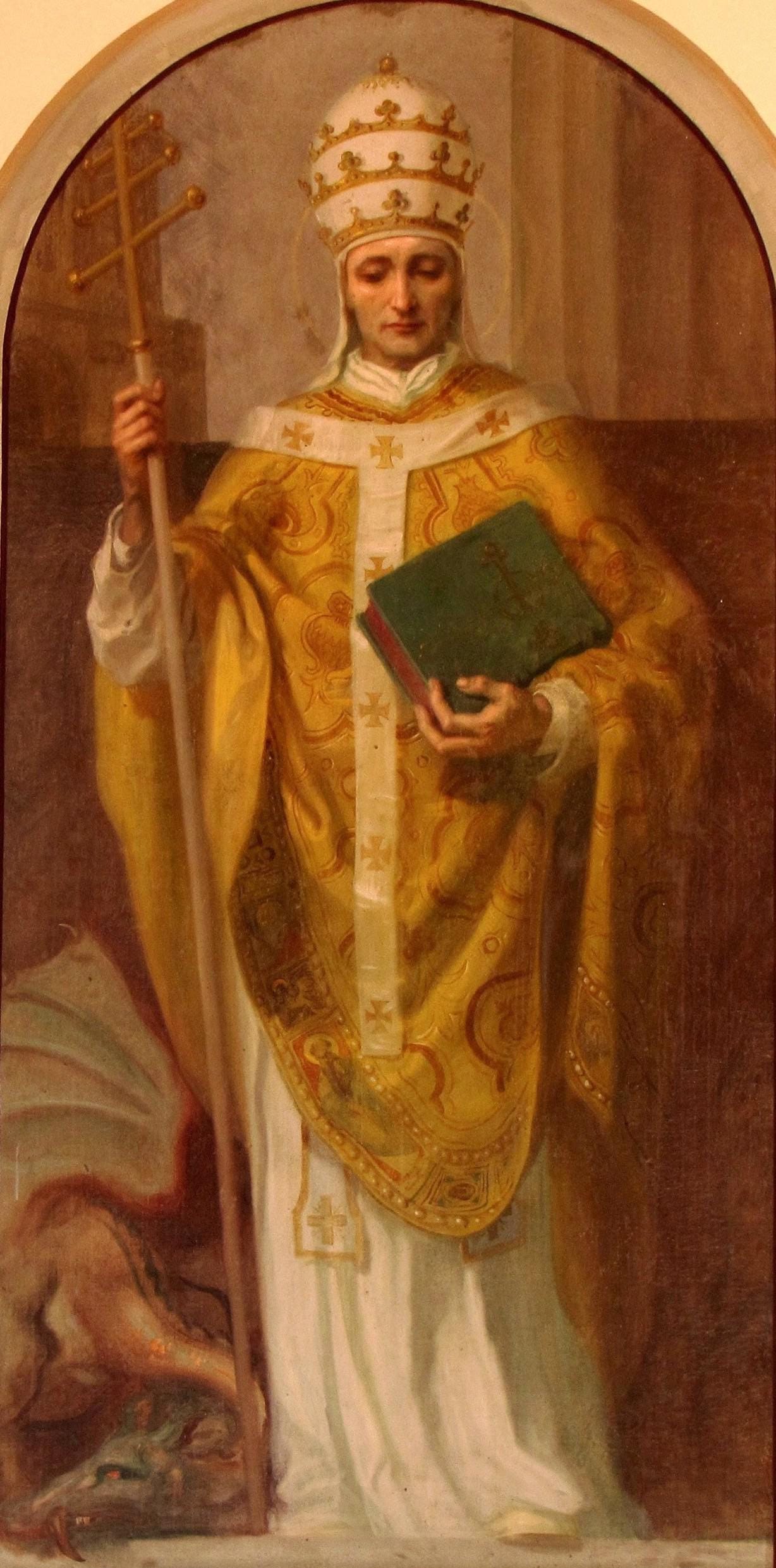The Bishop of Rome
Reuniting the Church: Catholicism of the undivided Church of the first millennium
The Vatican has released a ‘study document’ on papal primacy and synodality in the ecumenical dialogues and the responses to the encyclical Ut unum sint.
Published by the Dicastery for Promoting Christian Unity and approved by Pope Francis, the document The Bishop of Rome is just shy of 150 pages with four major chapters, followed by a summary:
Ecumenical Reflections of the Ministry of the Bishop of Rome
Fundamental Theological Questions
Perspectives for a Ministry of Unity in a Reunited Church
Some Practical Suggestions of Requests Addressed to the Catholic Church
On initial inspection, this seems to be a genuine good-faith approach to ecumenism in an attempt to consider what a reunited Church might look like. This is not your RadTrad in the comments posting, “SUBMIT TO ROME”, or your Roman supremacist yelling, “SUBMIT TO THE POPE.” This is Pope Francis saying, “Submit to Christ. We’ll work the rest out together.” Unity, to The Bishop of Rome, “does not signify the submission of one to the other, or assimilation. Rather, it means welcoming all the gifts that God has given to each, thus demonstrating to the entire world the great mystery of salvation accomplished by Christ the Lord through the Holy Spirit.”
The preface makes this clear with a continuation of St John Paul II’s invitation for ‘other Christians’ to find together forms “in which ministry of the Bishop of Rome ‘may accomplish a service of love recognized by all concerned’” There is a renewed emphasis on the Bishop of Rome being a “ministry of unity” in the Church.
This document is honest and fair. Pope Francis recognises that so far, “We have made little progress in this regard”. He echoes Pope St Paul VI, “the Pope […] is undoubtedly the gravest obstacle on the path of ecumenism” and that “his pastoral office of unity ‘is not a supremacy of spiritual pride and a desire to dominate mankind, but a primacy of service, ministration, and love’”. The Bishop of Rome intends to build upon Paul VI’s move to find a “collegial way of exercising primacy for the good of the entire Church”.
St John Paul II continued this process “to find a way of exercising the primacy which, while in no way renouncing what is essential to its mission, is nonetheless open to a new situation”, as did Pope Benedict XVI who “in his first address, spoke of himself assuming ‘as his primary commitment that of working tirelessly towards the reconstitution of the full and visible unity of all Christ’s followers’.”
There is an appetite for Churches to unite without submission, “Lumen gentium strengthened the office of bishops who govern their particular churches as ‘vicars and ambassadors of Christ […] and not as vicars of the Roman Pontiffs’” One might wonder what cancelled priests and good shepherds like Bishop Strickland might make of that statement.
The Bishop of Rome seems to aim to rollback the ultramontanism of Pius IX, “the Pope is not, by himself, above the Church; but within it as one of the baptized, and within the College of Bishops as a Bishop among Bishops,” whilst still professing to the primacy of Rome “called at the same time — as Successor of Peter — to lead the Church of Rome which presides in charity over all the Churches”. This approach may be welcomed by Eastern Orthodox and Old Catholic Churches, as well as Anglo-Catholics who have always professed the Successor of Peter to be Primus Inter Pares - first among equals.
All of this should be seen in the wider context, taking into consideration that Pope Francis has been highlighting his primary title as Bishop of Rome and delegating all other titles under the category of “historical titles”. At the same time, he brought back the use of “Patriarch of the West” among them in the annual Vatican Diptychs (Pontificio Annuario del Vaticano 2024). This pope clearly sees his role as a patriarch among patriarchs, first among equals, and leader of the apostles. As the document states, “from the early Church, Christianity was established on major apostolic sees occupying a specific order, the see of Rome being the first.” This more humble approach may indeed bring a welcome “contribution to the reestablishment of unity among all Christians”.
Those who believe in the Catholicism of the undivided Church of the first millennium may be interested to read, “Certain criteria of the first millennium were identified as points of reference and sources of inspiration for the acceptable exercise of a ministry of unity at the universal level, such as: the informal – and not primarily jurisdictional – character of the expressions of communion between the Churches; the ‘primacy of honour’ of the Bishop of Rome;”
Delving into this document, one might be encouraged or petrified, depending on one’s theology, to read that a “rediscovered brotherhood” of Churches “should also be re-read theologically, alongside the dogmatic differences of the past.” Especially when we read, “One of the fruits of the theological dialogues is a renewed reading of the ‘Petrine texts’, which have historically been a major stumbling block between Christians.” Avoiding “anachronistic projections of later doctrinal developments”, the Church has been able to “consider afresh the role of Peter among the apostles”. This seems to have born some good fruits, as through “exegesis and patristic research, new insights and mutual enrichment has been achieved, challenging some traditional confessional interpretations.” In particular, we are clearly referring to Matthew 16:17–19, in which Christ said to Simon-Peter, "Petros, on this petra I will build my church." Biblical scholar, Dr Jules Gomes, writes of the Church Fathers on this topic, “44 fathers understood the rock to be Peter’s confession of faith, 16 interpreted the rock as Jesus, 8 interpreted the rock as all the apostles, and a few believed the rock to be the faithful. Only 17 fathers thought the rock was Peter.”
Another admission is that “The dogmatic definitions of the First Vatican Council are a significant obstacle for other Christians.” This includes the definition of papal infallibility. This time, it is not Rome that has come to a different conclusion, but the ecumenical partners, “ecumenical dialogues have registered promising progress when undertaking a ‘re-reading’ or ‘re-reception’ of this Council, opening up new avenues for a more accurate understanding of its teaching.” Here we read of the importance of studying “Vatican I not in isolation, but in the light of their historical context, of their intention and of their reception – especially through the teaching of Vatican II.” For instance, in regards to papal infallibility, “the choice of terms used (‘ordinary’, ‘direct’, ‘immediate’), some dialogues were able to clarify the dogmatic definition of universal jurisdiction, by identifying its extension and limits." This already seems to have had a positive impact, “they were able to clarify the wording of the dogma of infallibility and even to agree on certain aspects of its purpose, recognizing the need, in some circumstances, for a personal exercise of the teaching ministry, given that Christian unity is a unity in truth and love.”
That said, there remain issues regarding Solo (see: Prima) Scriptura and ecclesiology, “In spite of these clarifications the dialogues still express concerns regarding the relation of infallibility to the primacy of the Gospel, the indefectibility of the whole Church, the exercise of episcopal collegiality and the necessity of reception.” but on the issue of Church government, the document does state that “Rome must not require more of the East than was formulated and lived during the first millennium… It implies the recognition of the right of the Eastern Churches to ‘govern themselves according to their discipline’” which should come as a sigh of relief to many.
Further regarding Church governance, there seems to be an understanding that bringing Churches back into the fold of one universal Church would not be made easier if all focus were not on Rome and conversations were instead had at different levels. There is a repeated emphasis throughout the document on “the three levels of the Church: local, regional and universal”, and this process of decentralisation could be a good thing, “Western Christian communions, observing an ‘asymmetry’ between these communions and the Catholic Church, call for a strengthening of Catholic episcopal conferences, including at the continental level, and for a continuing ‘decentralization’ inspired by the model of the ancient patriarchal Churches.”
On a pragmatic level, there is an understanding that the Church cannot operate under a one-size-fits-all approach, “Bishop of Rome’s relationship to the Eastern Churches and their bishops […] would have to be substantially different from the relationship now accepted in the Latin Church.” As Churches re-enter communion with each other, this will be important as a sign of practical unity and a move away from submission, “Churches will continue to have the right and power to govern themselves according to their own traditions and disciplines.”
On the issue of uniatism, unity in diversity appears to be the favoured approach, “direct jurisdiction of the Roman See over all the local Churches… can no longer be accepted either as a method to be followed nor as a model of the unity our Churches are seeking.” In regards to the pope’s temporal authority, some Churches argued “power of the Bishop of Rome should not exceed that required for the exercise of his ministry of unity at the universal level” and went further still, “a voluntary limitation in the exercise of his power – while recognizing that he will need a sufficient amount of authority to meet the many challenges and complex obligations related to his ministry.” It will be interesting to see how this plays out.
The Bishop of Rome makes many practical suggestions on how all of this may work, but the essence seems to be “a renewed understanding and exercise of papal primacy can contribute to the restoration of Christian unity.” This author tends to agree.
The four main suggestions are:
“a Catholic ‘re-reception’, ‘re-interpretation’, ‘official interpretation’, ‘updated commentary’ or even ‘rewording’ of the teachings of Vatican I”
“a clearer distinction between the different responsibilities of the Bishop of Rome, especially between his patriarchal ministry in the Church of the West and his primatial ministry of unity in the communion of Churches, both West and East, possibly extending this idea to consider how other Western Churches might relate to the Bishop of Rome as primate while having a certain autonomy themselves.”
More synodality.
“A last proposal is the promotion of ‘conciliar fellowship’ through regular meetings among Church leaders at a worldwide level in order to make visible and deepen the communion they already share. In the same spirit, many dialogues have proposed different initiatives to promote synodality between Churches, especially at the level of bishops and primates, through regular consultations and common action and witness.”
Suggestions one and two make good sense. Suggestion 3, I fear, may lead to more progressive ideas infiltrating the Church. The last suggestion seems to be a continuation of the twenty-year process leading up to The Bishop of Rome. If this is the result, more conversations must surely be a good thing?
That they all may be one; as thou, Father, art in me, and I in thee, that they also may be one in us: that the world may believe that thou hast sent me.
And the glory which thou gavest me I have given them; that they may be one, even as we are one:
I in them, and thou in me, that they may be made perfect in one; and that the world may know that thou hast sent me, and hast loved them, as thou hast loved me.






If this came under a better pope, I might find it encouraging. But not only is Francis on the edge of apostasy, but he has so stacked the College of Cardinals that I do not expect to see a genuinely orthodox pope in my lifetime.
And remember Francis is a Peronist. What he says often depends on his audience.
> "More synodality."
I tend to agree with you that this will legitimatize the progressive capture of the already existing synods and conferences of bishops. As things stand today, Rome is thoroughly captured by modernism — a vigorous traditionalist movement notwithstanding (and this is the very group who will reject Francis's overtures).